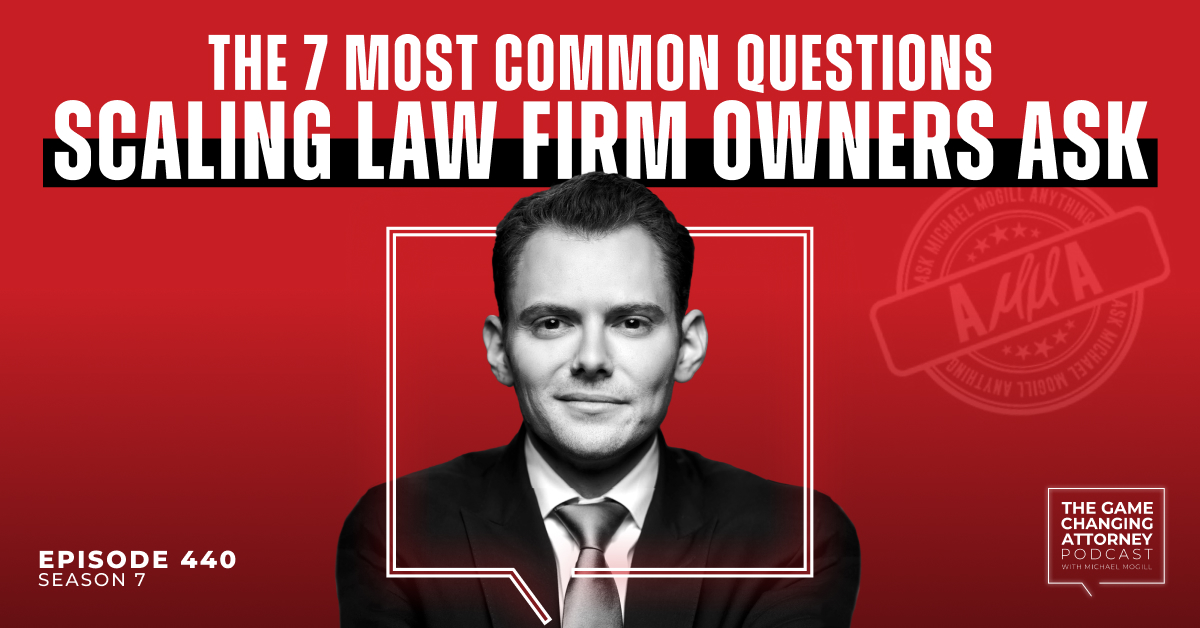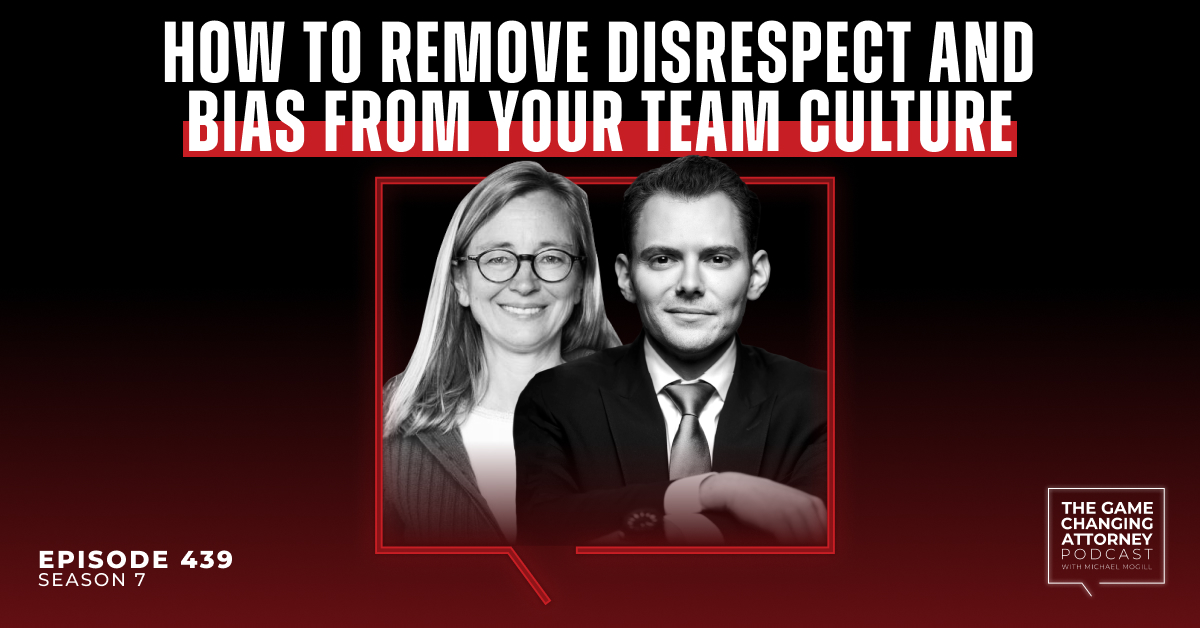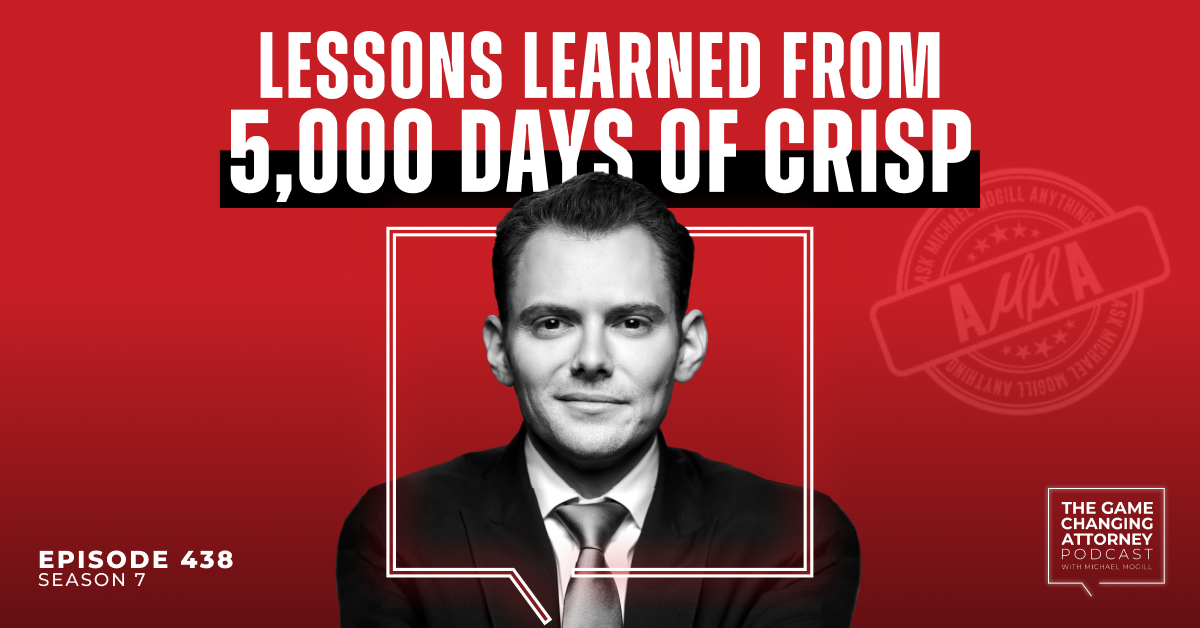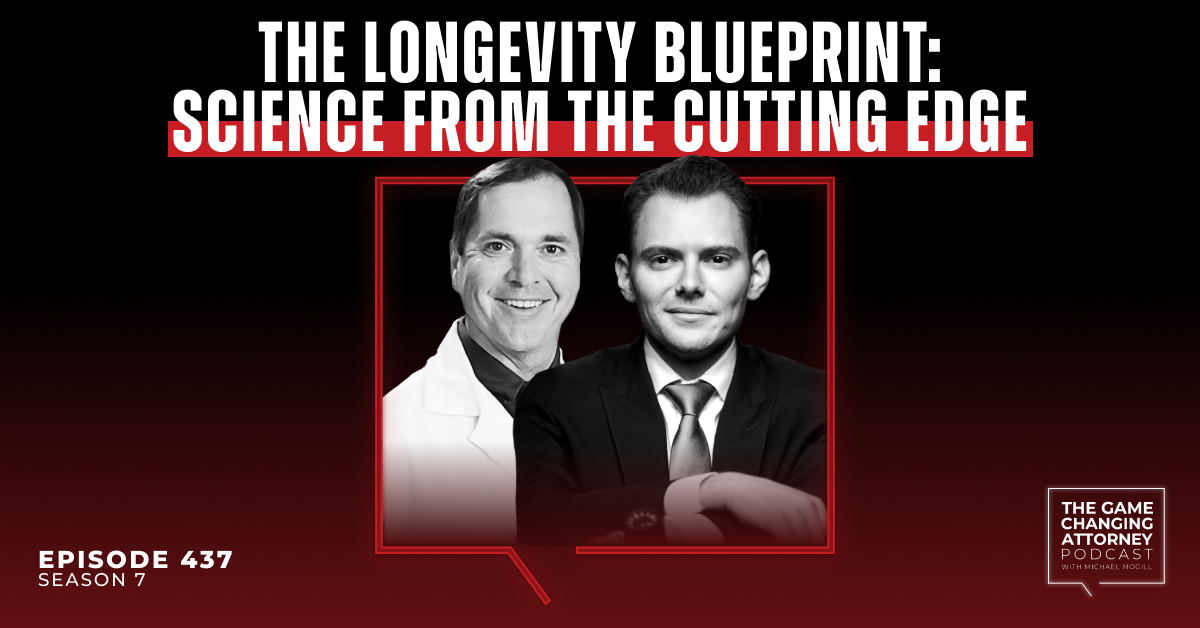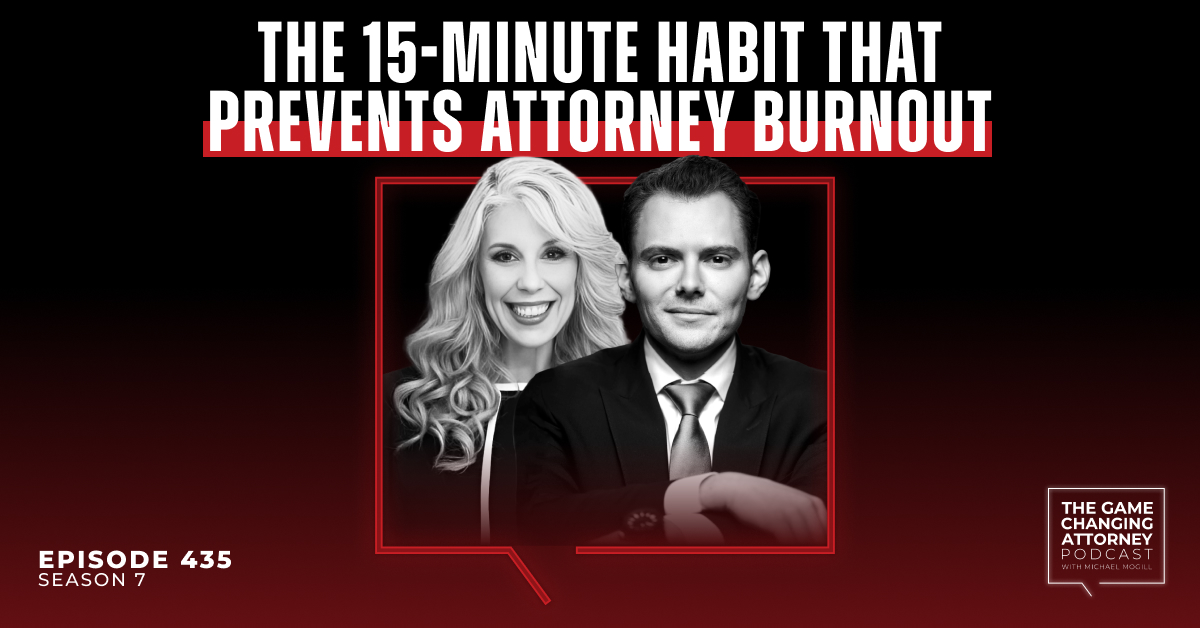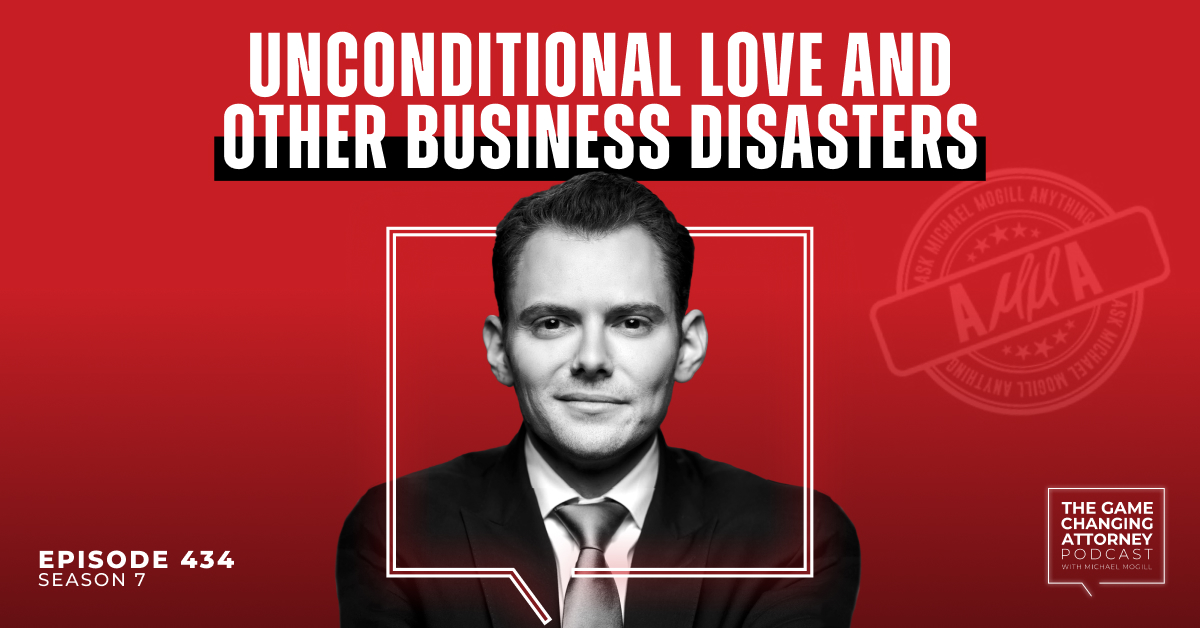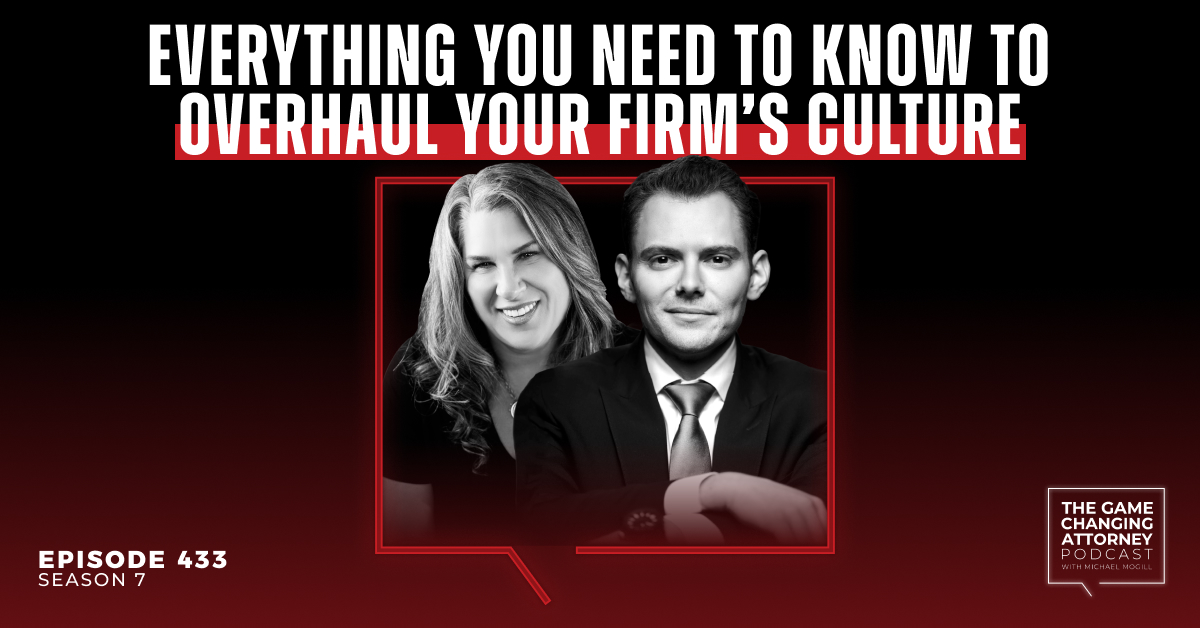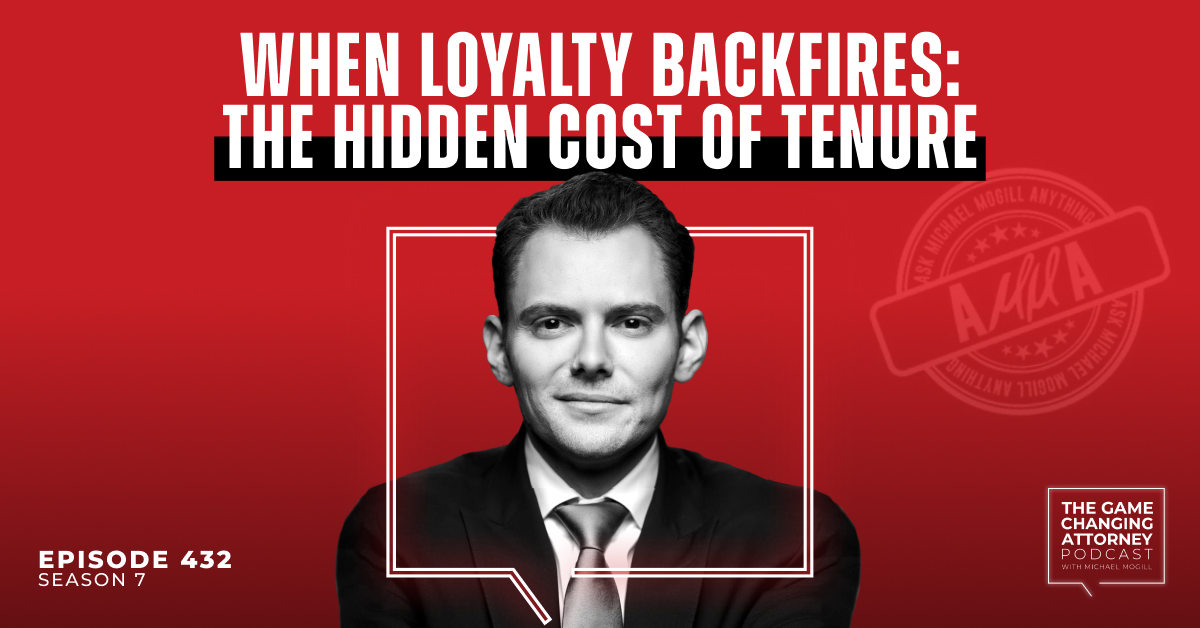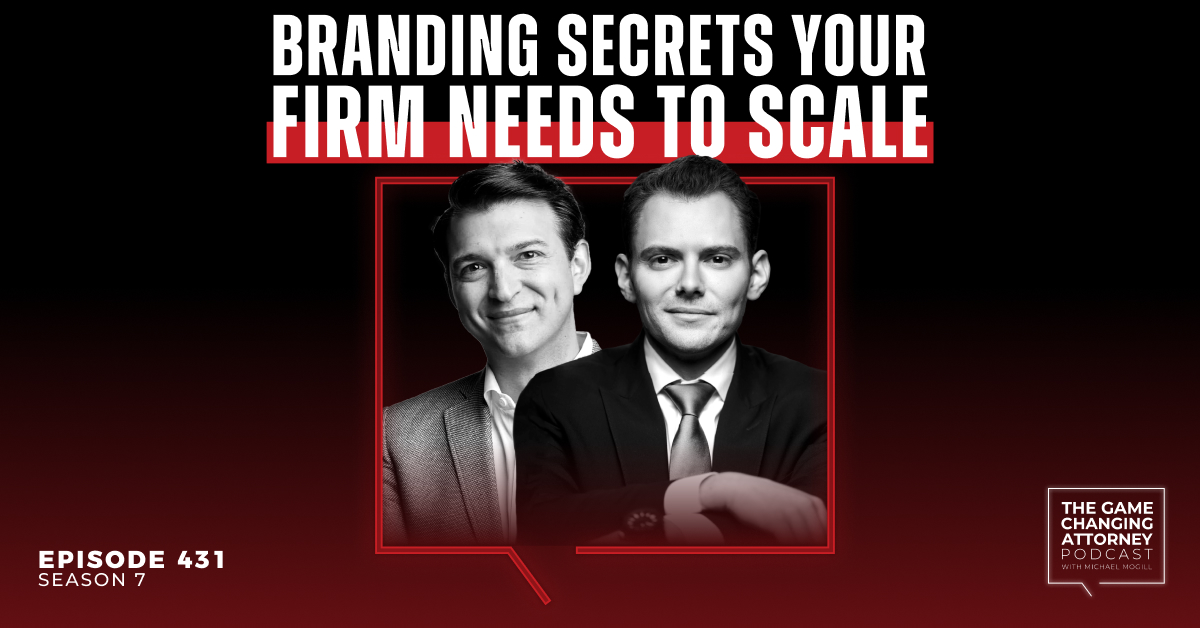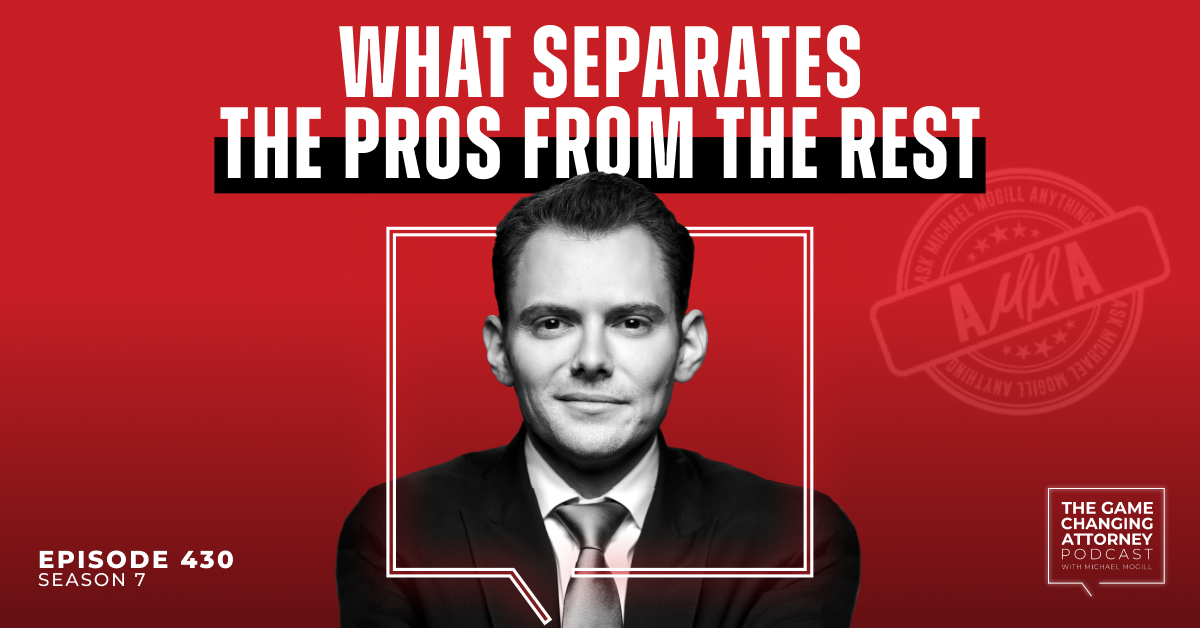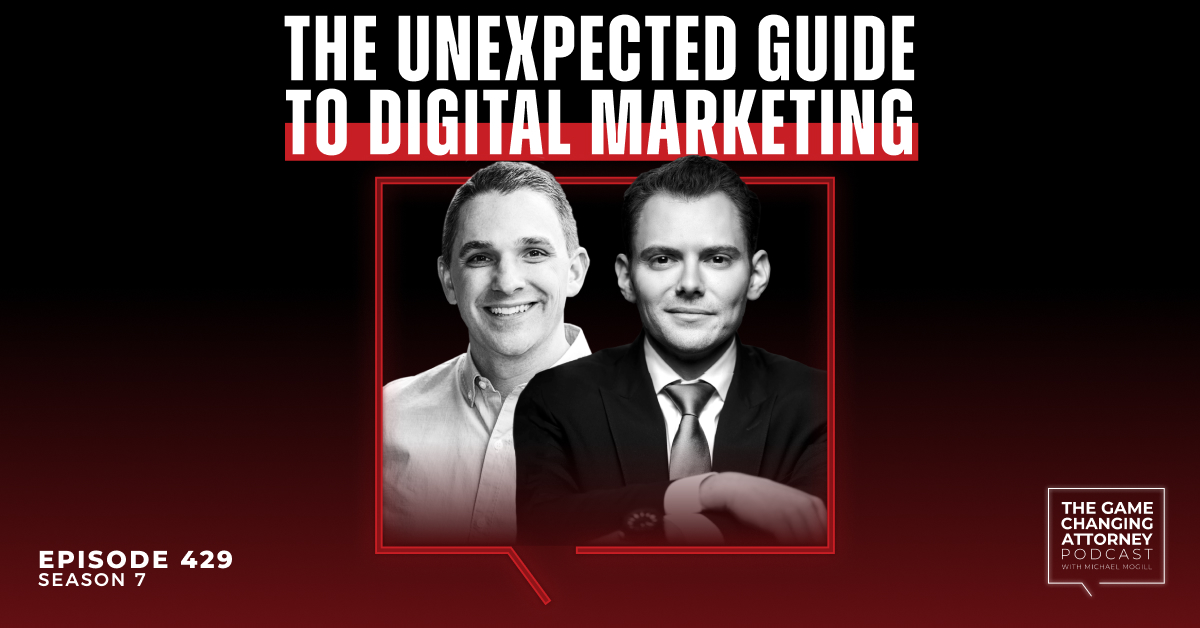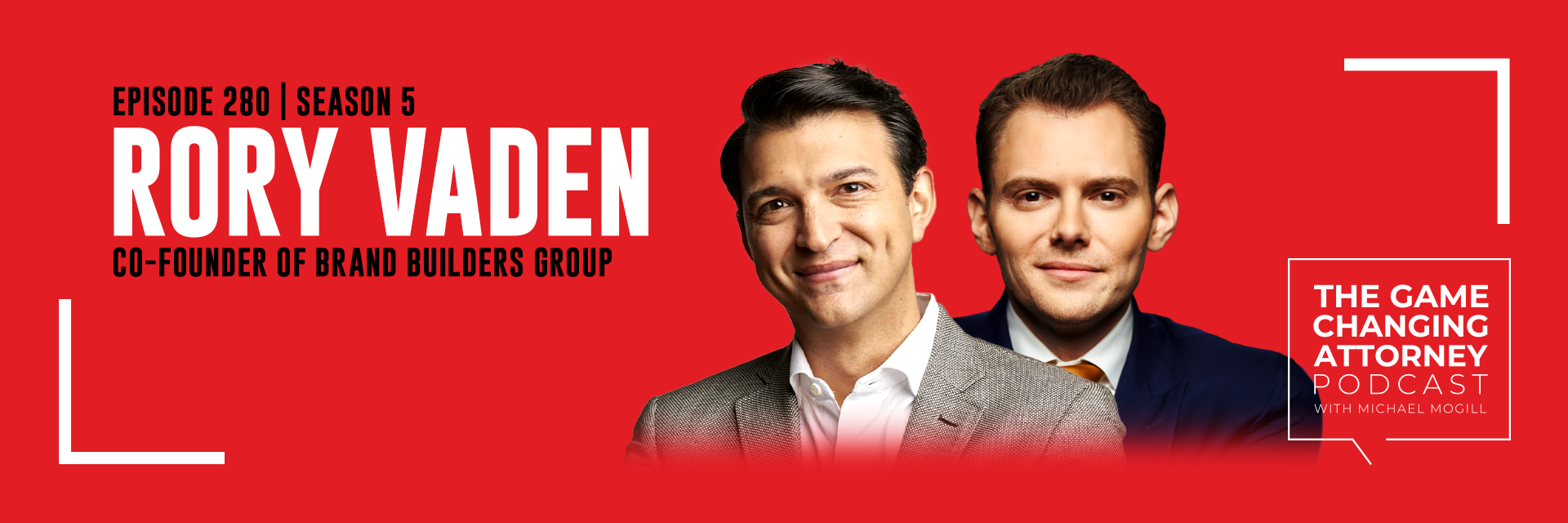
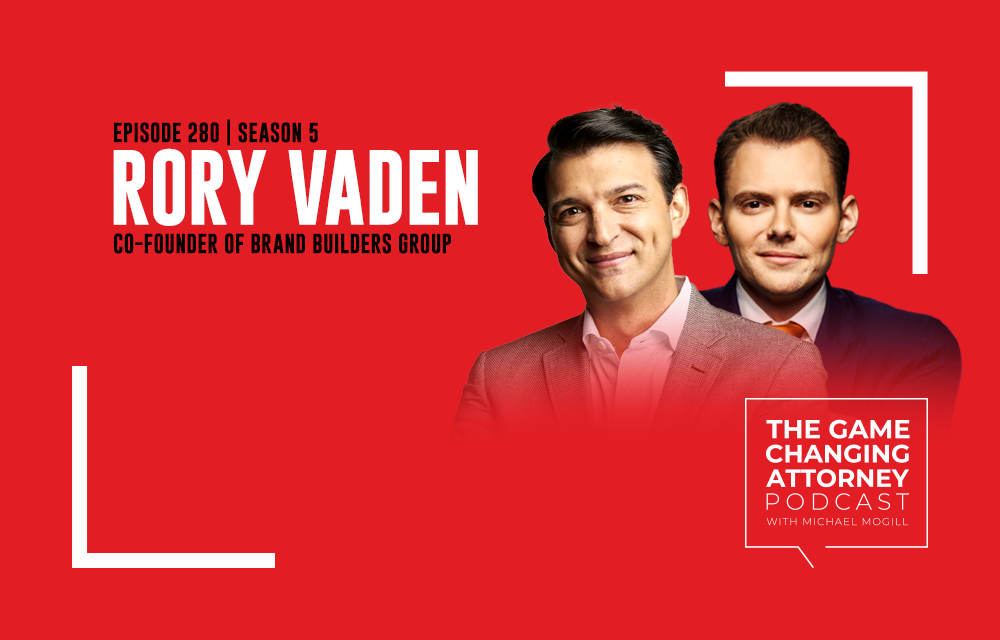
Episode 280 — Rory Vaden — Reputation Precedes Revenue: Mastering the Art of Personal Branding
What if you could turn your reputation into a magnet for trust and revenue?
Rory Vaden can tell you how.
By honing in on your unique value and focusing on a singular problem and audience, Rory has helped countless entrepreneurs and professionals break through the noise and become recognized leaders in their fields.
Rory’s data-driven insights and proven frameworks aren’t just for influencers or TikTok stars. They’re essential for anyone in a high-trust profession — especially lawyers.
In this episode of The Game Changing Attorney Podcast, Rory joins Michael Mogill to discuss:
- How to automate trust when building a digital reputation
- The proven strategies to move from obscurity to authority in the legal industry
- How to harness your unique value to skyrocket your firm’s impact and influence
Listen now and discover how to become the go-to expert in your industry, serve clients deeply and authentically, and build a reputation that stands the test of time.
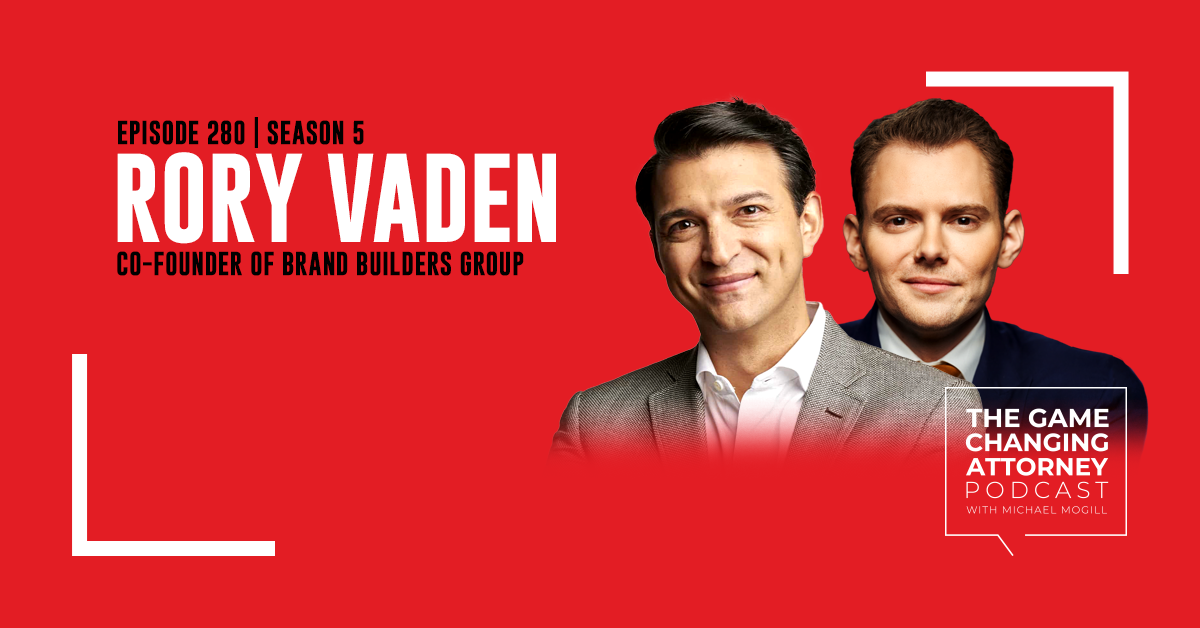
Listen & Subscribe
Show Notes:
Build trust with branding. “74 percent of Americans say they are more likely to trust someone who has an established personal brand. 61 percent of Americans say they want their doctor to have an established personal brand. Following closely, 59 percent of Americans believe it matters that their employer has a recognizable personal brand. For lawyers, 58 percent of Americans want their legal representatives to have an established personal brand. This trend continues with financial advisors, bankers, and insurance agents. While personal branding might seem like it’s for YouTubers and TikTokers, in reality, the higher the trust required in your profession, the more crucial an established personal brand becomes.”
Design your reputation. “Everyone has a personal brand because everyone has a reputation. It’s essential to anchor that connection: asking if you have a personal brand is like asking if you have a reputation. The real question is whether your personal brand is by default or by design. Is it the one you want, and is it widely known? Many people think they have a revenue problem, but in reality, reputation precedes revenue. If I don’t know about you, I can’t buy from you. This isn’t a vanity game or a fame game. It’s about serving people — and they can’t find you if you’re not visible. You’ll know if you have an established personal brand by the number of warm inbound leads you generate.”
Data-driven influence. “Building a great reputation in real life takes time, and the same applies online. The biggest personal brands in the world — those with the largest audiences, most followers, and most successful podcasts — aren’t necessarily the most gifted or talented. They may not even be the ones most divinely orchestrated. The people with the biggest personal brands today are those with the most sophisticated systems. They excel in content creation, measure everything, and continuously optimize. Reaching more people is much more of a science than an art.”
Teach what you know. “You don’t need to cheapen your brand or your expertise. You can simply be an expert. You don’t have to create dancing videos on TikTok; you can focus on teaching what you know for free. People don’t pay for information because it’s readily available everywhere. Instead, they pay for application. They want things done for them. The more they learn about a topic, the more they realize how complicated and nuanced it is, leading them to think, ‘I need to hire someone to solve this problem for me.'”
Trust beats clicks. “The scoreboard of media isn’t about accuracy. It’s about attention. The media’s business model relies on getting impressions and eyeballs, meaning they need to capture as much attention as possible. Simply being accurate doesn’t attract attention. It’s the superlatives, exaggerations, myths, fear, and polarizing content that draw people in. Many experts feel inadequate because they don’t have a lot of followers. However, it’s important to remember that you’re not in a media model. You’re in a trust and truth model. You’re running an actual business, and you shouldn’t cheapen it just to gain more followers. You don’t need millions of followers to make millions of dollars.”
What does being a game changer mean to you? “A game changer, as we define it internally, is someone who passes our litmus test for making an immediate impact. When we hire someone, we ask ourselves if we can notice a difference right away. If there’s no immediate, noticeable impact within days, then that person may not be the right fit for us. We should feel and observe that something is different — that this person is changing things, improving processes, and streamlining operations. To me, a game changer is someone who makes a significant and noticeable impact, altering the course of events in a way that would not have happened in their absence.”
Connect with Michael
- Text directly at 404-531-7691
